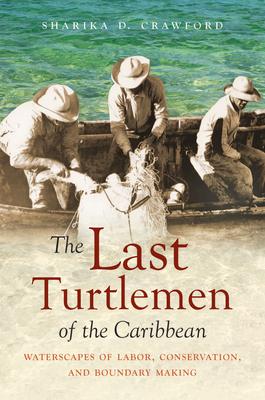
Book
The Last Turtlemen of the Caribbean: Waterscapes of Labor, Conservation, and Boundary Making
(Write a Review)
$110.00
Crawford describes the colonial Caribbean as an Atlantic commons where all could compete to control the region's diverse peoples, lands, and waters and exploit the region's raw materials. Focusing on the nineteenth and twentieth centuries, Crawford traces and connects the expansion and decline of turtle hunting to matters of race, labor, political and economic change, and the natural environment. Like the turtles they chased, the boundary-flouting laborers exposed the limits of states' sovereignty for a time but ultimately they lost their livelihoods, having played a significant role in legislation delimiting maritime boundaries. Still, former turtlemen have found their deep knowledge valued today in efforts to protect sea turtles and recover the region's ecological sustainability.
Crawford describes the colonial Caribbean as an Atlantic commons where all could compete to control the region's diverse peoples, lands, and waters and exploit the region's raw materials. Focusing on the nineteenth and twentieth centuries, Crawford traces and connects the expansion and decline of turtle hunting to matters of race, labor, political and economic change, and the natural environment. Like the turtles they chased, the boundary-flouting laborers exposed the limits of states' sovereignty for a time but ultimately they lost their livelihoods, having played a significant role in legislation delimiting maritime boundaries. Still, former turtlemen have found their deep knowledge valued today in efforts to protect sea turtles and recover the region's ecological sustainability.
Hardcover
$110.00